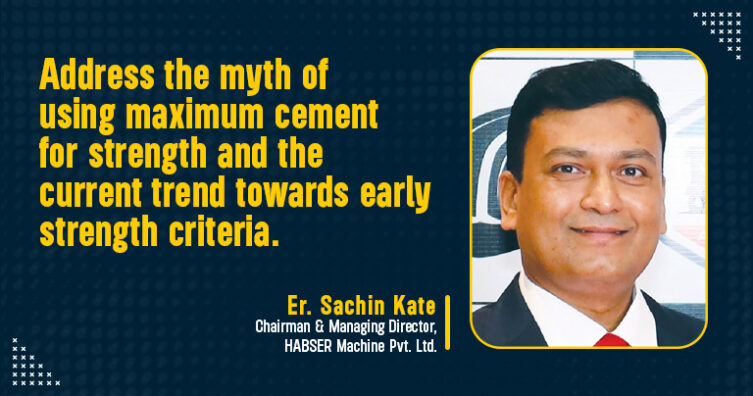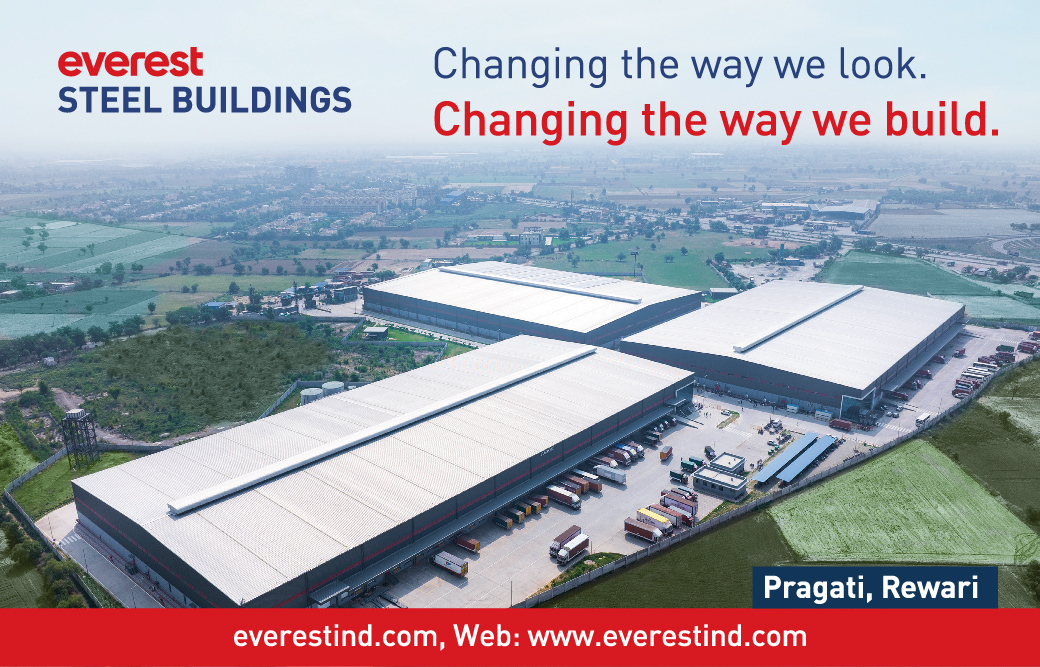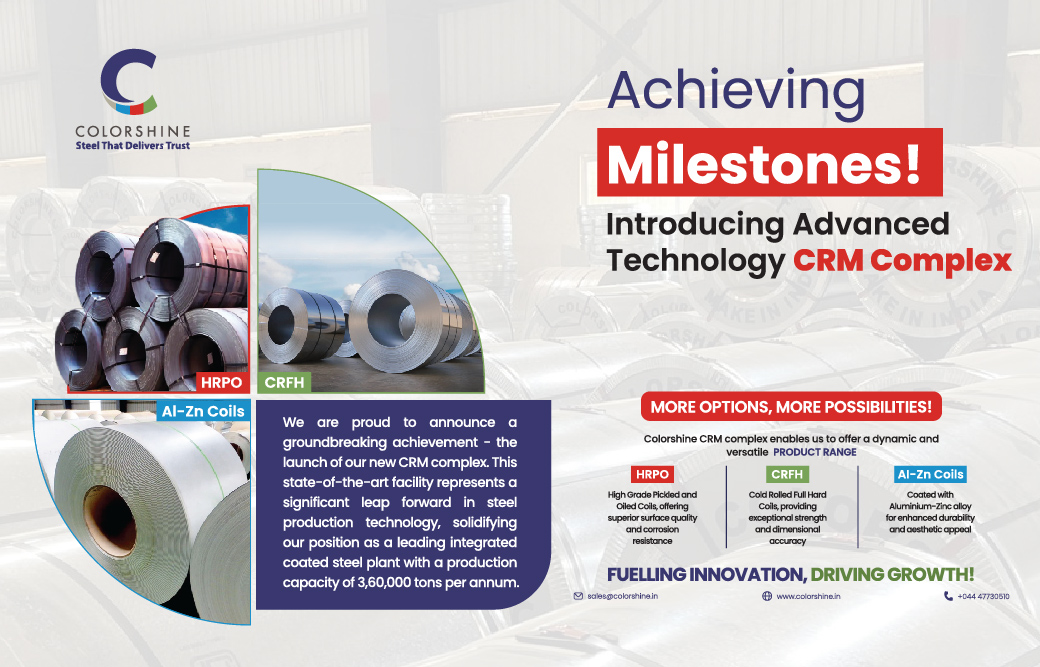Er. Sachin Kate, Chairman & Managing Director of HABSER Machine Pvt. Ltd., in an interview with B2B Purchase, points out that the construction industry in India is still traditional despite rapid changes in the Indian and global construction industry.
How do you ensure the quality of the concrete produced in the batching plant?
Hasber C-30, India’s First Patented Truck Mounted Mobile Concrete Manufacturing Plant Machine, is 100 percent Indian Made, fully Automatic, with an Auto Calibration System, a New Edge of Advance Concrete Manufacturing Machine, GPS, and IoT enabled, and is specially designed for the Indian Construction Industry. HASBER MACHINE introduces a new revolution in the construction industry by delivering FRESH MIX CONCRETE on-site in just 40 seconds, cost-effectively and transparently, according to the client’s MIX design. HASBER C-30 ensures the best quality with an accurate quantity of concrete all the time due to its unique features. The HASBER C-30 is a reliable machine for producing highquality concrete due to several features, such as a patented high torque Twin Shaft unidirectional mixer, a fully automatic patented batching system, and a customdesigned PLC system. The machine eliminates concrete detention, waiting, and transit time, has an auto-calibration system, a controlled water/ cement ratio, and requires less admixture dosage. The HASBER C-30 produces freshly mixed concrete on-site, offering the flexibility to produce different concrete grades simultaneously. These features make it a versatile and efficient option for various construction projects.
How do you ensure cost-effectiveness and performance efficiency in HASBER C-30?
Presently in India, we use concrete on construction sites manufactured at Ready Mix Concrete Plant (RMC Plant). As per IS: 4926 code suggestion, any Concrete Produced at RMC Plants has to reach and Consume on the construction site before 120 minutes. Due to traffic conditions and site locations from RMC Plants, its difficult to maintain the transit time criteria of Ready Mix Concrete. This leads to extra add-on Fuel and Admixture Costs to Buyer with a risk of Concrete Quality.
HASBER C-30 is Specially designed and developed to deliver small to large fresh concrete quantities of all different grades of concrete with versatile cost effective, and performance efficient parameters in the entire Indian market.
The system boasts various cost-effective parameters, including zero infrastructure cost required for setting up, no need for transit mixers for concrete transportation, and no costs associated with obtaining statutory permissions. Less area is needed for raw material storage, and freshly mixed concrete reduces waste and associated costs by providing exact quantities. The system is also flexible in producing multiple grades with the same raw material, and customers only pay for the exact quantity needed, resulting in significant cost savings.
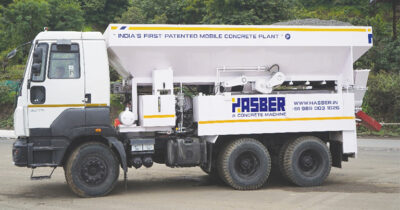
Please elaborate on the performance efficiency parameters followed in the HASBER C-30 system.
The HASBER C-30 system is equipped with three separate bins for aggregates, including 10mm, 20mm, and sand, with their conveyors. It also has two separate bins for cementitious materials, cement and either fly ash or GGBS, with two separate conveyors. The system includes two adjoined water compartments with a heavy-duty water pump and two admixture tanks with their admixture pump for precise control over the addition of admixtures.
It is designed to ensure a homogeneous concrete mix’s rapid and efficient production. It features a heavy-duty hydraulic drive from a Kirloskar Make 434 Slave Engine, enabling the simultaneous discharge of ingredients into the Twin shaft mixer in required quantities. The mixer is incredibly efficient, with a cycle time of just 40 seconds. The system also comes equipped with a fully automatic batching system based on Weight, Volume & Time (VWT) batching system, which is patented. The Twin Shaft Mixer is a high-torque WCMD mixer with a hydraulic discharge gate protected by an Indian Patent.
What measures do you suggest to minimise the safety risks of operating a batching plant?
The Risk Management process generally involves three steps: Risk Identification, Risk Assessment, and Risk Prioritisation. To minimise safety risks associated with operations, the following measures should be taken: The placement of experienced and expert candidates as plant operators, the implementation of routine and breakdown maintenance checklists and schedules, the adoption of Standard Operating Procedures (SOP), safety training schedules, proper handling of all materials, the avoidance of injuries due to unsafe practices, mandatory usage of Personal Protective Equipment (PPE), following safe operational practices like Lock Out, Try Out, Tag Out (LOTOTO), working at heights (WAH), daily prep talk, tool-box talk, and safety awareness training and safety awards for motivation.
How do you manage and mitigate the environmental impacts?
HASBER C-30 is an eco-friendly concrete manufacturing plant because it manages and mitigates environmental impacts. Its features include no transit mixer, no diesel consumption, no pollution, and the ability to produce small quantities, avoiding waste generation. It also has low water and admixture consumption and less wastage of raw materials due to non-multiple handling. The fresh concrete manufacturing process also allows for non-continuous plant operations, saving electricity and diesel costs.
What are the challenges while optimising raw materials and minimising waste?
Optimising raw materials and minimising waste in concrete manufacturing poses several challenges, including the competency of designers, contractors, and concrete suppliers and knowledge of concrete properties and behaviour. Factors such as grade designation, choice of cement, aggregate size, water type, w/c ratio, workability, and durability also play a crucial role. Any changes in raw materials can affect the quality and performance of concrete, and the availability and consistency of the same quality of raw materials are also vital. The current trend towards early strength criteria and the myth of using maximum cement for strength also need to be addressed.
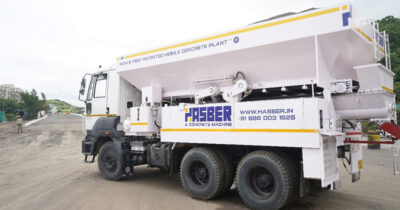
How have you adapted to changes in the market or specific customer requirements in the past?
Over the past decade, customer expectations have increased, and their power in vendor-customer relationships has grown. With increased competition in nearly every industry, customers have more options, which puts pressure on companies to differentiate their products and improve the customer experience.
Some examples of adapting to changes in the market are:
• Focusing on customer experience.
• Using social listening and monitoring tools.
• Conducting research and analysing results.
• Providing customers with a platform for feedback.
• Making and announcing changes based on customer feedback.
• Increasing the first contact resolution (FCR) rate.
• Initiating customer retention campaigns.
Which advanced and upgraded technologies are constantly added to your concrete equipment and its operations?
HASBER MACHINE is one of these companies, having enabled our machine GPS and IoT, featuring fully automatic operating functions, making it reliable, advanced, compact, and user-friendly. With technology advancing rapidly in the construction industry, we are confident that our HASBER Machine will offer an excellent alternative to the current concrete manufacturing process.
Cookie Consent
We use cookies to personalize your experience. By continuing to visit this website you agree to our Terms & Conditions, Privacy Policy and Cookie Policy.
